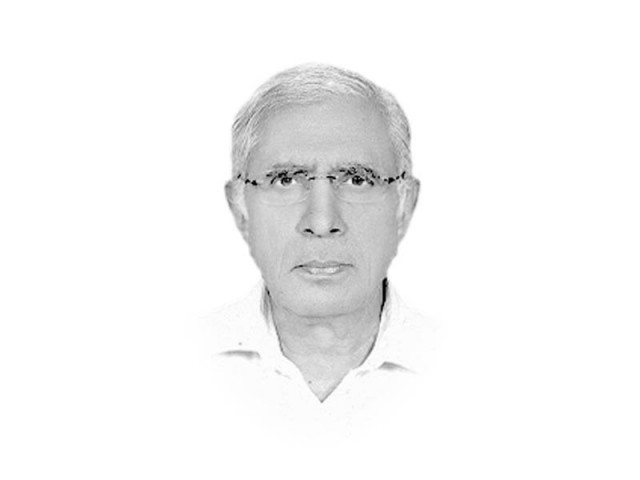Right qualification for the right job
It’s scary to think there are over one million ‘idle’ young males in Pakistan, who are vulnerable to crime & militancy

The writer served as Executive Editor of The Express Tribune from 2009 to 2014
There are said to be over one million ‘idle’ young males aged between 15 and 29 years who are vulnerable to crime and militancy. These individuals are neither undergoing education nor searching for jobs. While discussing the trend in real wages, IPR revealed that between 2008-09 and 2014-15, real wages have increased for technicians and professionals, while those for unskilled workers have fallen. The fact sheet concludes that for a sustainable unemployment-reducing situation to develop, the GDP growth rate will have to rise over six per cent. Simultaneously, the state and the private sector will both have to invest more in improving the skill endowment of the labour force.
The picture is highly discouraging, to say the least. Since the economy itself is in a state of stagnation, growing at the rate of 3-4 per cent per annum on an average over the last seven years, its job-generation capacity could hardly have been any better. However, the fact that the ‘literate’ and the ‘highly educated’ are finding it increasingly difficult to find a job points to a more worrying aspect of the problem. There seems to be a serious disconnect between the education that our system has been imparting to our youth over the last 60 years or so and the kind of ‘literate’ and ‘educated’ or ‘highly educated’ people that the jobs being generated by our evolving economy demand. That is why while millions of our literate and highly educated people are seen running from pillar to post looking for employment, there are jobs, if not in equal number then at least an adequate number, waiting to be filled by appropriately trained people.
By and large, we seem to be still stuck in the Lord Macaulay (member of the Supreme Council of India during 1834-38) system of education introduced by the colonial powers in the mid-19th century to produce obedient clerks. Of course, the system has undergone many changes but the underlying theme has remained unchanged. Being an agricultural country, we should have by now established world-ranking agricultural universities or at least a country-wide network of institutes imparting skills in agri-trade, agri-technolgies and agri-industries. And being the world’s fourth-largest cotton producer, we should have by now set up a world-recognised cotton research organisation or at least world class schools imparting skills for making the most of a commodity which has stood at the centre of the global economy for centuries and has generated enormous wealth. Globally, even today when other industries have overtaken it, cotton remains crucially important in terms of employment and global trade.
For the next 15 to 20 years, Pakistan is likely to be engaged in heightened economic activity led by the China-Pakistan Economic Corridor project. This project is expected to generate thousands of jobs in all kinds of skills and disciplines. It would help both those who would be joining the workforce over the next two decades as well as those who would like to invest in the project if either the Planning Commission and/or some enterprising private entrepreneur were to set up a research institute whose purpose would be to make projections as to how many jobs will be generated by the project over the next two decades and subsequently, and in what disciplines and locations in Pakistan. The results could be widely shared with the Higher Education Commission both at the federal and provincial levels so as to enable these commissions to plan appropriately and recruit the needed faculty.
Published in The Express Tribune, January 30th, 2016.
Like Opinion & Editorial on Facebook, follow @ETOpEd on Twitter to receive all updates on all our daily pieces.















COMMENTS
Comments are moderated and generally will be posted if they are on-topic and not abusive.
For more information, please see our Comments FAQ